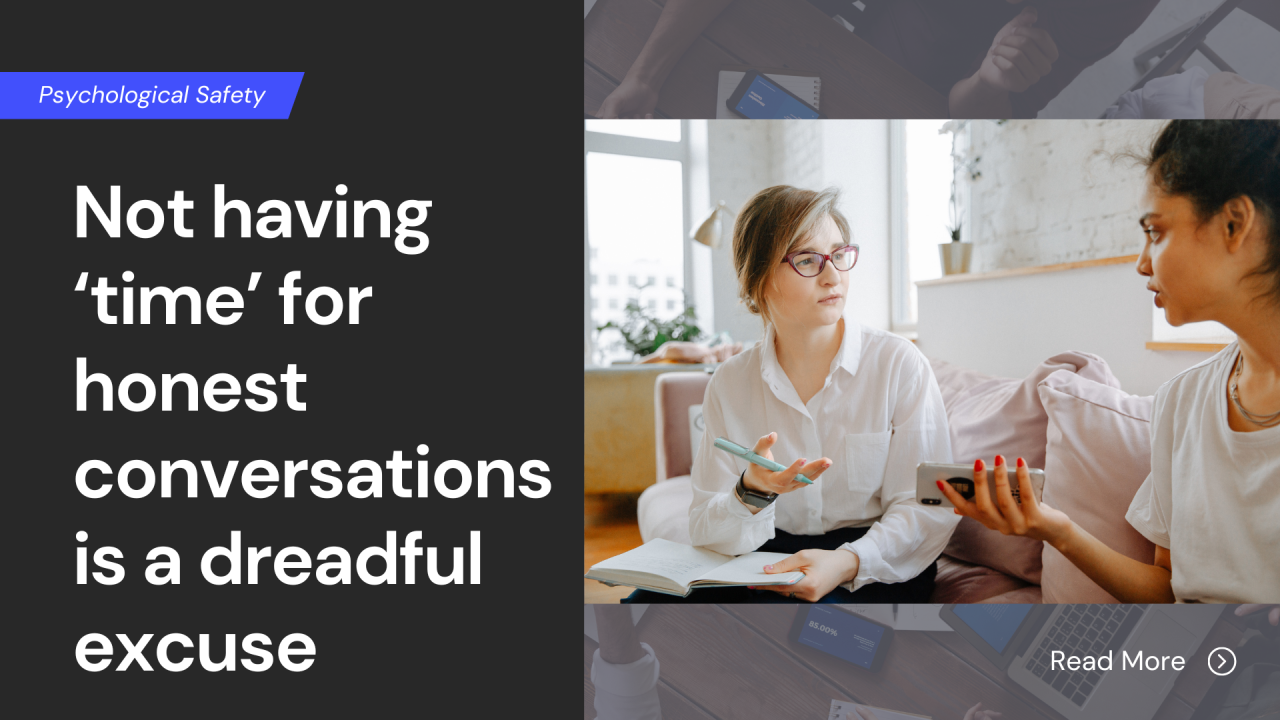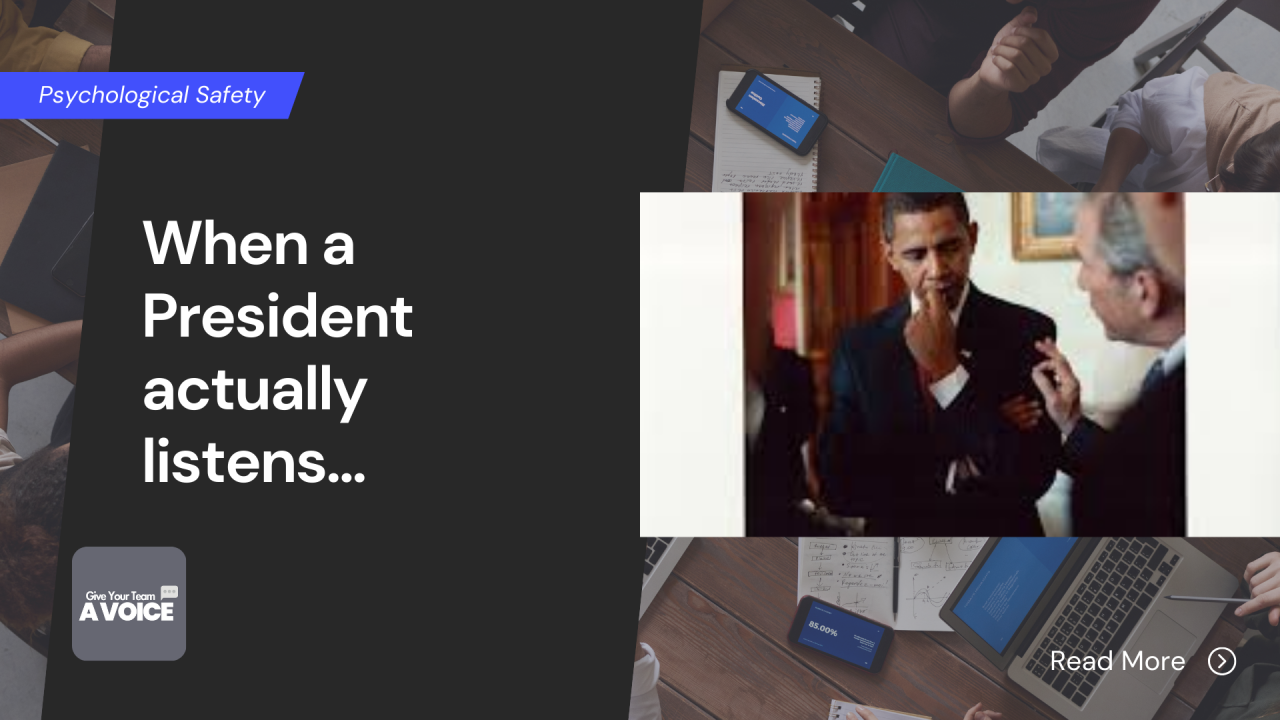What is Psychological Safety?
A shared belief that it's OK to speak up, take risks, express ideas or concerns and discuss mistakes without fear of embarrassment, rejection, or punishment. When colleagues feel they can do this, teams make better informed decisions, creativity and innovation can flourish, and motivation and engagement improves.
What Is It?What are you hearing at work?
Good news, progress, agreement and all is well… or bad news, problems, discontent and I need help?”
Just think about it for a minute…because if the only things you’re h...
In the 1950s, an Australian scientist named David Warren attended a trade show and saw a German-made dictaphone. His thought? “What if we used this to record the final moments of a flight, including t...
The higher you climb in an organisation, the funnier your jokes get. This is due to humans hard-wiring for self-protection, which can trigger what Julia Diamond calls the “rank reflex”. It leads peopl...
I am going to keep this short, because giving feedback does not have to take time.
In breakthrough sessions I run on how teams connect better for high performance, the topic of being more honest, giv...
The world has never been more volatile, uncertain, complex and ambiguous (VUCA). Business demands a fast-pace and increasing accountability, meaning a culture where colleagues feel safe sharing ideas ...
The strategy and plan are ‘often’ clear, but where things fall over are connection and communication, the cornerstone of high-performing teams. Last week on a Linkedin poll, I asked: "In your experien...
I am not a fan of the phrase ‘soft skills.’ It’s a derogatory term that under values important leadership essentials like communication and connection. McKinsey point out teams spend a lot of time on ...
For me the role of a coach is to partner with the client; supporting them raise their awareness of the opportunities and challenges they have; and leave them with the accountability for the behaviour ...
70% of leaders overestimate how safe their teams feel about speaking up. Imagine for a moment, the irony of a leader asking their team if they feel safe to speak up. What answer do you think they get?...
In a recent workshop with Quality Spirits International, a division of the premium spirits business William Grant & Sons, the team’s top score across various statements was “my leader values my opinio...














